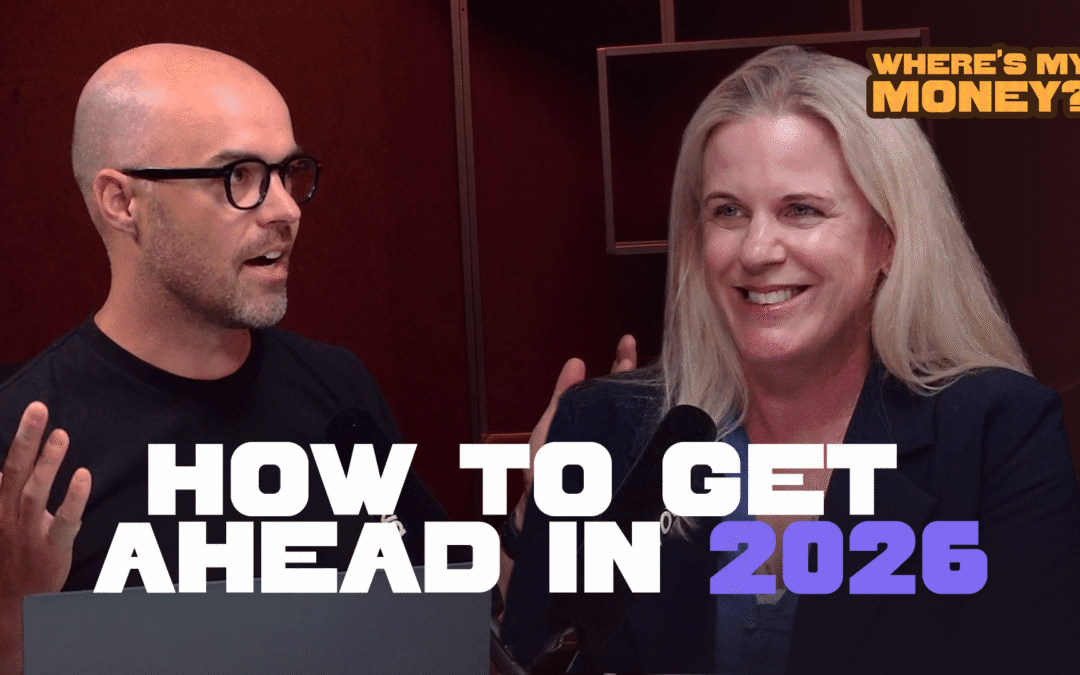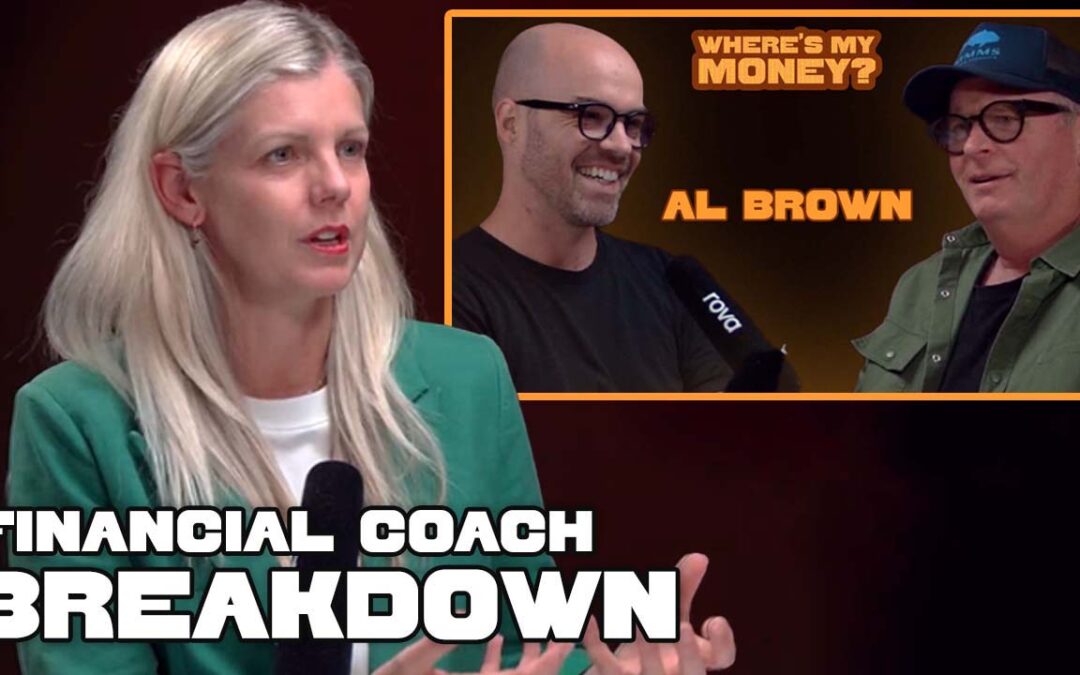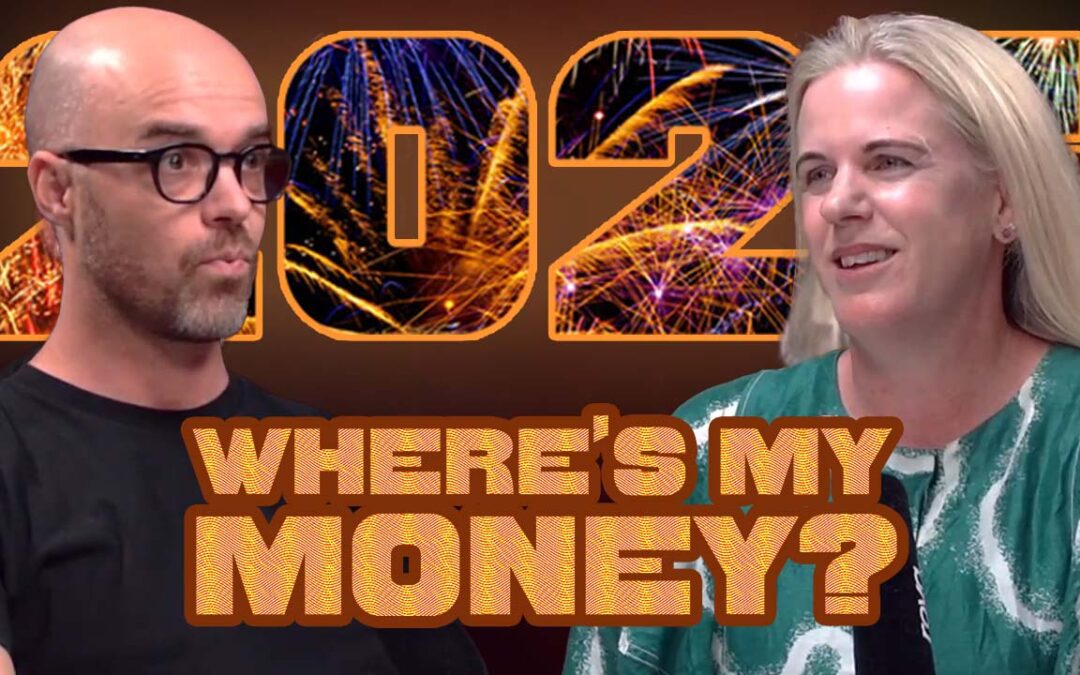Where’s My Money? Season 5, Episode 1
Season Five of multi-award-winning podcast Where’s My Money? is back to shed light on the common money questions New Zealanders are asking.
enable.me partners with rova to bring this podcast to life and stimulate the conversation about finances with everyday Kiwis. Where’s My Money? follows the story of Reagan – a man chasing the Kiwi Dream but feeling stuck living month-to-month – and his discussions with the experts about what he may be doing wrong and how to fix it.
One man. One million dollars of debt. One podcast to find a way out.
“It’s our time. Kia ora. Talofa. It’s our time, a special time of day.”
A song heard throughout living rooms and classrooms across New Zealand in the 1990s – it’s Kiwi icon Suzy Cato from her children’s television show You and Me.
Suzy joins Where’s My Money? host Reagan White to share her experiences building a production studio from scratch. She covers her upbringing in Hamilton and Kaikohe, and the tough calls she has made throughout her career about money, business, and her value.
Suzy Cato’s upbringing in Kaikohe
Suzy didn’t emerge fully formed as the iconic broadcaster Kiwis know and love. Like most characters on our screens, she has a backstory.
Growing up, Suzy’s family “didn’t have a lot of money,” but she says her Mum was “inventive,” and Dad was a “hard grafter,” so they made it work for a childhood full of wonderful memories.
Their local Northland community also made it an upbringing full of strong relationships and a classic New Zealand style of life.
Suzy’s father was connected to community groups such as the Rotary and all the kids raced around playing together while they were doing the committee organisation and events.
“The number of times that we would be at the cement yards, you know, bagging cement or scoria… the kids, we were racing around, climbing stacks and, you know, digging holes and all those sorts of thing,” she says.
“Although we did hobnob with the lawyers’ kids and so on, it wasn’t like, ‘oh, they are wealthy and we’re not,’ We were all part of the same colourful environment.”
Suzy says she doesn’t believe the discrepancies in lifestyles and money make much of a difference to how children relate to each other – unless they are told by more economically conscious older kids or adults around them.
Raising financially literate children
With her experiences growing up in Kaikohe in mind, Suzy was attentive with her own children to start talking about the world of money and money decisions from a young age.
She says, “we’ve encouraged our kids to think about what it is that they are spending.”
Suzy prompts open conversations around parting with their money, and the value of what is both being spent, and being bought. Not to put rules in place or tell her children what to spend, but to create curiosity before the money leaves their wallet or card.
Some questions that Suzy chooses to ask her children to make them more mindful before they spend on new items are:
- What are they purchasing? And what will they do with it?
- Why are they purchasing it?
- What are the options?
Instead of simply picking up the first item that fits the desired description and buying it, it’s about thinking critically about what you need, what you want, and the best way to spend your money that achieves your goals.
Suzy believed creating that friction with spending from a young age would set her children up to manage their money more effectively as adults.
The whirlwind of children’s television
Podcast host Reagan White asks Suzy what she would want to include if she were to be part of creating a show covering financial literacy for children.
She says, “I think it’s something that we all need, is to look beyond that Instagram window, so that we see that’s one part of it… but what’s the bigger picture?”
Having never been asked this question before, she reflects that having a financial television show for children “would be really quite valuable and it would come down to wellbeing… and looking at your aspirational selves and how people are getting there and why they’re getting there.”
In the episode, Suzy shares a behind-the-camera glimpse into what the radio, television and broadcasting world in New Zealand was like for a young up-and-comer in the 1990s.
Starting out in radio at the KCCFM station in Whangārei, then moving to an Auckland-based 91FM breakfast show, it wasn’t always smooth sailing for Suzy.
She took some side quests including working in a photography studio, then to BMG RCA records, where she had the conversation about children’s television presenters that changed her future career path.
She landed The Early Bird Show with puppet character Russell Rooster, then the show 3pm. When this was taken off the air after “a new broom came sweeping through at TV3 and a lot of us were let go,” she found her footing in the iconic You and Me.
Interestingly, though public perception may have been the glitz and glam of fame and broadcasting, Suzy shares that wasn’t always the case, especially with children’s television that has strict advertising protections.
She says, “the philosophy that I gathered around You and Me was with a preschool programme the broadcasters couldn’t put any advertising around it. So we had no branding.”
This meant she had the belief that, “because it’s children’s content, it isn’t commercial,” and with her Tree Hut Studios production company she says she, “didn’t commercialise it the way [she] potentially could have.”
Instead, she saw it as a service for New Zealand’s young people.
Find the ‘yes’
Suzy was both a broadcaster and a business owner, which gave her unique perspectives on life, money, and her worth.
When TV3 let her go, she says she “took it particularly hard,” and experienced “days in bed and depression,” due to being the business owner, presenter, executive producer and so on.
However, wearing all of the hats and shouldering all of the responsibilities that come with it, these hard times created reflection and growth for Suzy.
“You use your failures as stepping stones. They’re not failures. They’re stepping stones,” Suzy shares.
“If you take the personal out of it and can be creative around it and come in it from different angles then you are going to be better at doing it each time.”
And, ultimately for Suzy, she says she’s “learned that if somebody tells me no, then there’s a really good chance that I’m going to find a yes.” She recommends others take up this philosophy, because if you don’t put yourself out there with a chance of failure, you will also never have the chance to succeed, as she has.
If you too loved your time spent watching Suzy Cato growing up – or if you’re only just discovering her now with your own children – check out this inspiring episode of Where’s My Money? to hear her full insights from a life lived in the broadcasting spotlight.
“So long, see ya, enoho rā. Goodbye my friend.”
Disclaimer: The Where’s My Money? podcast and the information shared by host Reagan White and his guests does not constitute individual financial advice. If you’re interested in receiving financial advice, you can book a consultation with an enable.me coach. Costs apply.



